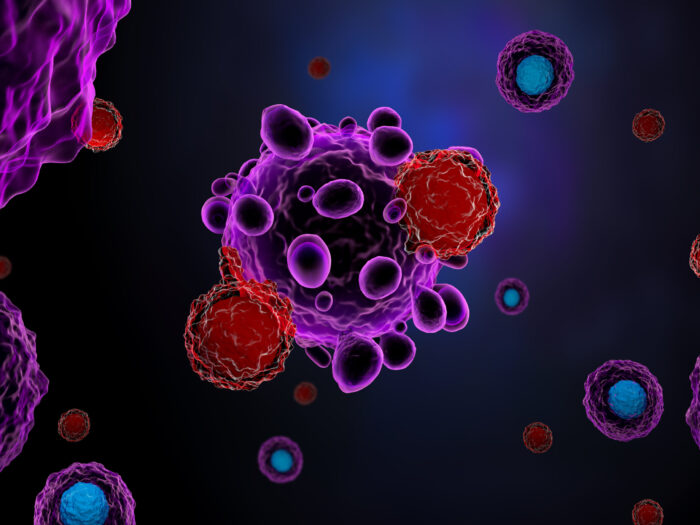Oncology Ventures met with more than 250 early-stage cancer startups in the past four months. On Wednesday, the New York City-based investment fund announced the three that stood out as deserving of its capital.
The fund invested in the three startups — VivorCare, Gabbi and Health Universe — because they all demonstrated an ability to tackle a specific problem within the cancer care space, said Ben Freeberg, Oncology Ventures’ founder and managing partner, in a recent interview.
Cancer — the second leading cause of death in the U.S. — causes an annual economic burden greater than $21 billion. There are plenty of startups developing technology to enable better cancer care and reduce spending, but it remains difficult for investors to separate truly impactful companies from the hype. In the case of Oncology Venture’s most recent investments, the three startups stood out as worthy of the fund’s money because they all had “the right business model at the right time with the right teams,” Freeberg declared.
VivorCare
There are startups on the market that promise to save money by facilitating more personalized cancer care — such as simBioSys and Imagene AI — but VivorCare is the first platform that Freeberg has seen that is focused on cancer survivors.
There are about 18 million cancer survivors in the country. After they finish their cancer treatments like chemotherapy and surgeries, they often feel “thrown back into the world,” Freeberg pointed out.
“Your body just went through an incredible amount of pain, medicine and discomfort. But the oncologist is treating the next patient. You go get your checkups and scans every few months with your primary care doctor, but only 5% of them are well-trained and survivorship care guidelines. So you have this lost, confused patient that we know is in and out of the hospital all the time. How do you help them?” he explained.
On VivorCare’s platform, patients are assigned nurse practitioners who are trained in survivorship care, and they design personalized care plans based on each patient’s medical history and life circumstances.
The platform reduces patients’ fear of cancer recurrence by directing them toward the right scans and tests, as well as helps save money by keeping patients out of the hospital, Freeberg said.
Gabbi
There’s no shortage of early detection companies on the cancer care market, with companies like Grail, Freenome and Kheiron on the long list. Freeberg said that Oncology Ventures met with “a ton of” early detection-focused companies, but Gabbi was the most impressive because it’s “laser-focused on breast cancer and has a best-in-class proprietary data algorithm.”
The algorithm determines a patient’s risk level of developing breast cancer based on a comprehensive set of data “that is more precise and accurate” than the one used in the Gail Model, which is the leading tool to help determine breast cancer risk to date, Freeberg explained.
For example, a young female patient who is at high risk of developing breast cancer because she has dense breast tissue shouldn’t be getting a mammogram, because that really wouldn’t show anything. Instead, she should be getting something like a breast MRI or CT scan. Gabbi is building its platform so that in a case like this, it can step in and immediately direct this patient’s care team to schedule a breast MRI or CT scan.
“This journey is normally nine months. Someone finds a lump, they go and get a mammogram, and then it comes back inconclusive because it wasn’t the right test. Then they go back to get a second mammogram three months later. There’s the same inconclusive results because again, it’s still the wrong test. Then they finally get an MRI, but it’s nine months later and their breast cancer just went from stage one to stage two to stage three, and their chance of survival went down from 99% to about 30%,” Freeberg said.
In his view, most early detection startups don’t have a focus on helping patients during this specific phase of the cancer care journey: when the patient knows there is something wrong but needs help navigating the early steps on the cancer care process.
Health Universe
It’s challenging to determine which startups will end up winners in the healthcare AI and machine learning market, Freeberg said. Because of this uncertainty, the company chose to invest in Health Universe, a company that instead provides the underlying infrastructure to support the use of AI in healthcare settings.
“This is a pick and shovel approach. During the gold rush, the people who made the most money were the ones who sold the picks and the shovels to the people mining for gold. So that’s exactly how we’re feeling here with Health Universe,” Freeberg declared.
The startup is essentially “building GitHub, but purpose-built for healthcare AI researchers,” he explained.
Researchers at large cancer centers and institutions go through a great deal of trouble to develop AI models. They’ll spend months developing a model, proving that it works and publishing research about it. But oftentimes, these tools just end up sitting on a shelf instead of being used in care settings. Health Universe is building a platform to actually commercialize and scale those models into the healthcare ecosystem, Freeberg said.
Credit: Meletios Verras, Getty Images
















